Discovering the world of organic decaf coffee is a journey worth taking, especially for health enthusiasts looking for a delicious yet guilt-free option. With its rich flavors and numerous benefits, organic decaf coffee allows you to indulge without the jitters that often come with caffeine. Whether you’re a seasoned coffee lover or just starting, understanding how to choose and enjoy this delightful beverage can elevate your coffee experience.
In this article, we’ll explore the many health benefits of organic decaf coffee and discuss why choosing organic is not only good for you but also for the environment. You’ll learn about the different types of beans, the importance of roasting methods, and how to properly extract the best flavors from your brew. Plus, we’ll share tips on storing your coffee to maintain its freshness.
Join us as we dive into the rich history of coffee culture and how it has evolved over the years. By the end, you’ll be equipped with all the knowledge you need to savor every sip of your organic decaf coffee.
- Learn about the health benefits of choosing organic decaf coffee.
- Discover the best roasting techniques and extraction methods.
- Explore the fascinating history of coffee and its cultural significance.
The Appeal of Organic Decaf Coffee
Health Benefits
When it comes to coffee, many people are increasingly aware of the health benefits associated with organic decaf options. First and foremost, organic decaf coffee is free from synthetic pesticides and fertilizers, making it a safer choice for your body. This means you can enjoy your favorite beverage without worrying about harmful chemicals. Additionally, decaf coffee retains many of the antioxidants found in regular coffee, which can help combat oxidative stress and inflammation in the body.
Moreover, choosing organic decaf can be especially beneficial for those sensitive to caffeine. This allows coffee lovers to enjoy a rich and flavorful cup without the jitters or anxiety that caffeine may cause. It’s a wonderful way to savor the taste of coffee at any time of the day, whether you’re unwinding in the evening or looking for a warm drink during your morning routine.
Lastly, organic decaf coffee can help support heart health. Studies suggest that the antioxidants present in decaf may lower the risk of heart disease by improving blood vessel function and reducing inflammation. So not only is it delicious, but it also contributes positively to your overall well-being.
- Organic decaf is free from harmful chemicals.
- Retains antioxidants beneficial for health.
- Supports heart health and reduces inflammation.
Environmental Considerations
In addition to the health benefits, the appeal of organic decaf coffee extends to its environmental impact. By choosing organic, you’re supporting farming practices that prioritize sustainability. Organic farmers often use crop rotation and natural fertilizers, which help maintain soil health and reduce erosion. This approach not only benefits the land but also contributes to a healthier ecosystem.
Furthermore, organic decaf coffee production typically involves less water pollution, as harmful chemicals are avoided. This means cleaner water sources for local communities and wildlife, promoting biodiversity. It’s a small choice that can lead to significant positive changes in the environment.
As coffee enthusiasts, being mindful of our choices not only enhances our coffee experience but also allows us to contribute to a more sustainable future. By selecting organic decaf, we align our coffee habits with our values, making a difference one cup at a time.
- Supports sustainable farming practices.
- Reduces water pollution and protects ecosystems.
- Aligns your coffee choices with environmental values.
How to Choose Organic Decaf Coffee
Types of Beans and Their Characteristics
When it comes to selecting organic decaf coffee, understanding the different types of beans is essential. The two most common varieties are Arabica and Robusta. Arabica beans are known for their smooth and nuanced flavors, making them a popular choice among coffee aficionados. They tend to have a sweeter taste with hints of fruits and sugar, which can create a delightful experience when brewed. On the other hand, Robusta beans have a stronger and bolder flavor profile, often with earthy or nutty undertones. They also contain more caffeine, even in decaf form, which can influence the overall taste.
Choosing between these beans depends on your personal preference. If you enjoy a milder and more aromatic coffee, go for an Arabica-based organic decaf. However, if you like a robust cup with a punch, Robusta might be the better option for you. Whichever you choose, make sure the beans are certified organic to enjoy the full benefits of your decaf coffee.
- Arabica beans are smooth and sweet.
- Robusta beans are bold and earthy.
- Look for certified organic options.
Understanding Labels
Navigating the labels on coffee packaging can be overwhelming, but it’s crucial for making informed choices. When you see “organic” on a decaf coffee bag, it means the beans were grown without synthetic pesticides or fertilizers. Additionally, look for certifications from organizations like the USDA, which ensure strict adherence to organic farming standards.
Another important aspect to consider is how the coffee was decaffeinated. There are several methods, including the Swiss Water Process and CO2 extraction, which are chemical-free and retain much of the coffee’s original flavor. If the label mentions these methods, it’s a good sign that you’re getting a quality product. Remember, not all decaf coffee is created equal, so taking the time to read the labels can enhance your coffee-drinking experience significantly.
Furthermore, pay attention to the roast date. Freshness is key to a flavorful cup, so opt for coffee that has been roasted recently. This ensures you’re getting the best taste and aroma in every sip.
- Look for USDA organic certification.
- Check the decaffeination method used.
- Choose coffee with a recent roast date.
The Importance of Roasting Methods
Basics of Roasting
Roasting is a crucial step in the coffee-making process that can significantly influence the flavor and aroma of your cup. The roasting method you choose plays a vital role in defining the final taste profile of your organic decaf coffee. During roasting, the natural sugars within the beans caramelize, creating a complex range of flavors. A lighter roast typically highlights the fruity and floral notes, while a darker roast can bring out richer, bolder flavors with chocolate or nutty undertones.
Understanding the roasting process can help you appreciate how different levels can affect your coffee experience. For instance, if you prefer a milder, more delicate taste, look for beans that are lightly roasted. Conversely, if you enjoy a stronger flavor, a medium to dark roast might suit you better. The key is to experiment and find the roast level that resonates with your palate.
When selecting organic decaf coffee, it’s essential to consider the roasting method used by the producer. Some roasters specialize in small-batch roasting, ensuring each batch is carefully monitored for optimal flavor extraction. This attention to detail can make a significant difference in the quality of your coffee.
- Roasting influences flavor and aroma.
- Light roasts highlight fruity notes, while dark roasts offer bold flavors.
- Small-batch roasting can enhance coffee quality.
Home Roasting Techniques
If you’re feeling adventurous, home roasting can be a rewarding way to connect with your coffee. It allows you to customize the roast level to your liking and ensures you’re always enjoying the freshest beans. There are several methods for roasting at home, including using a popcorn maker, a stovetop pan, or a dedicated home coffee roaster. Each method has its own set of advantages and can yield delightful results.
Whichever technique you choose, keep in mind that monitoring the roast closely is crucial. The beans can quickly transition from perfectly roasted to overdone, so pay attention to the color and smell. Once your beans reach your desired roast level, let them cool and rest for a day or two before brewing. This resting period allows the flavors to develop fully, enhancing your coffee experience.

If you’re eager to dive deeper into the world of coffee and discover how the choices you make about beans and their quantity can significantly shape your flavor experience, you might find our article on Exploring How Coffee Bean Choices and Quantity Define Flavor particularly insightful. This piece offers a comprehensive look at how various factors influence the overall taste of your brew, enhancing your coffee journey even further.
- Home roasting allows for customization.
- Popular methods include popcorn makers and stovetop pans.
- Monitor closely to avoid over-roasting.
Extraction Methods and Tips
Differences Between French Press and Drip
When it comes to brewing organic decaf coffee, the method you choose can greatly impact the final flavor profile. The two popular methods, French press and drip coffee, each offer a unique way to extract the essence of your coffee beans. With a French press, the coarse grounds steep in hot water for several minutes, allowing for a full-bodied and robust flavor. This method captures the oils and fine particles that enhance the richness of your brew.
On the other hand, the drip brewing method provides a cleaner cup of coffee. Water filters through the coffee grounds, extracting flavors more subtly and resulting in a lighter taste. This method is often favored for its convenience and consistency. If you enjoy exploring different flavor notes, experimenting with both methods can be a fun way to discover what suits your palate best.
Regardless of which brewing technique you choose, the quality of your water matters too. Using filtered water can enhance the flavors of your organic decaf coffee, making each sip a delightful experience. Additionally, consider the temperature of the water; it should be just off boiling to extract the best flavors without scalding the beans.
- French press offers a full-bodied flavor.
- Drip coffee provides a cleaner taste.
- Quality water enhances the final brew.
Optimal Extraction Time
Understanding the optimal extraction time is key to enjoying the best flavors from your organic decaf coffee. For a French press, a steeping time of about four minutes is usually ideal. This allows the coffee grounds to release their flavors fully without becoming bitter. If you prefer a lighter taste, you might experiment with a shorter extraction time. The beauty of the French press is that you can tailor it to your liking.
In contrast, drip coffee typically has a shorter extraction time, usually around five to six minutes. This method relies on gravity to pull the water through the coffee grounds, so timing is essential to avoid over-extraction. When the coffee brews too long, it can turn bitter, overshadowing the delicate flavors of your organic decaf beans.
Finding the right balance between extraction time and grind size will lead to a more enjoyable coffee experience. Don’t hesitate to play around with these variables until you discover your perfect brew. Each cup is an opportunity to learn more about the nuances of your organic decaf coffee.
- French press steeping time is about four minutes.
- Drip coffee extraction generally takes five to six minutes.
- Adjusting time and grind size can enhance flavor.
Coffee Storage Techniques
Best Storage Containers
Storing your organic decaf coffee properly is essential to maintain its freshness and flavor. The right storage container can make a significant difference in preserving those delightful notes you love. Ideally, you want a container that is airtight to prevent exposure to moisture and oxygen, which can lead to stale coffee. Glass jars with tight-fitting lids or ceramic containers work beautifully for this purpose. They not only keep your coffee fresh but also add a touch of style to your kitchen.
Another important factor to consider is light exposure. Coffee is sensitive to light, which can degrade the quality of the beans over time. Choosing opaque containers can help shield your coffee from sunlight, ensuring that it stays vibrant and flavorful. If you have a larger quantity, consider investing in a vacuum-sealed bag or container, as these can further extend the life of your organic decaf coffee.
Temperature is also crucial for coffee storage. Keeping your coffee in a cool, dark place, like a pantry or cupboard, is ideal. Avoid storing it in areas where it may be exposed to heat, such as near the stove or in direct sunlight. By taking these simple steps, you can enjoy the rich taste and aroma of your organic decaf coffee for longer.
- Use airtight containers to keep coffee fresh.
- Choose opaque jars to protect from light.
- Store in a cool, dark place away from heat.
Storage Duration and Precautions
Understanding how long your organic decaf coffee can be stored is key to enjoying it at its best. Generally, whole beans can maintain their flavor for about two to four weeks after roasting if stored properly. If you’ve already ground your coffee, the flavor can start to fade within a week. To maximize freshness, consider grinding your beans just before brewing; this way, you’ll capture the full essence of the coffee.
If you purchase larger quantities, freezing your coffee beans can be a great option. However, it’s important to use an airtight container to avoid freezer burn and moisture. When you’re ready to use them, allow the beans to come to room temperature before opening the container. This helps prevent condensation from affecting the quality of your coffee.
Lastly, keep an eye on the aroma and flavor of your decaf coffee. If you notice any off odors or a dull taste, it may be time to replace your supply. Freshness matters, and taking these precautions will allow you to savor every cup of your organic decaf coffee to the fullest.
- Whole beans stay fresh for two to four weeks.
- Ground coffee should be used within a week for optimal flavor.
- Freezing can extend shelf life if done correctly.
The History of Coffee Culture
Origins of Coffee
The fascinating journey of coffee begins in the highlands of Ethiopia, where coffee plants first thrived. Legend has it that a goat herder named Kaldi discovered the energizing effects of coffee beans after noticing his goats dancing energetically after eating them. This sparked curiosity, leading to the cultivation and trade of coffee as we know it today. From Ethiopia, coffee spread to the Arabian Peninsula, where it became a vital part of social life, particularly in coffeehouses known as qahveh khaneh.
As coffee gained popularity, it made its way to Europe in the 17th century. Initially met with skepticism, it transformed into a beloved beverage, often referred to as the “bitter invention of Satan” by some. However, it quickly won over hearts and minds, leading to the establishment of coffeehouses throughout cities like London, Paris, and Vienna. These establishments became hubs for intellectual discourse, where people gathered to share ideas and discuss everything from politics to art.
The 20th century saw further evolution in coffee culture, particularly with the advent of instant coffee and espresso machines. The rise of specialty coffee shops in recent decades has emphasized quality, sustainability, and the appreciation for organic and fair-trade options. This shift reflects a growing awareness of the environmental and health impacts of our coffee choices, paving the way for organic decaf coffee to find its place in the hearts of coffee lovers around the world.
- Coffee originated in Ethiopia before spreading to the Arabian Peninsula.
- Coffeehouses became cultural hubs for discussion in Europe.
- The 20th century brought changes in coffee preparation and appreciation.
Evolution of Coffee in Japan
Japan’s relationship with coffee began in the early 17th century when it was first introduced by Dutch traders. Initially, it was a luxury item enjoyed by the elite, but over time, coffee culture developed uniquely. By the late 19th century, coffee shops began to emerge in cities like Tokyo, offering a cozy atmosphere for people to gather.
In the post-World War II era, coffee consumption surged, leading to the establishment of kissaten, traditional Japanese coffee shops. These establishments offered a tranquil space for patrons to enjoy meticulously brewed coffee, often accompanied by light meals. The focus on quality and preparation mirrored the Japanese tea culture, creating a distinct coffee experience.
Today, Japan boasts an impressive coffee scene that embraces both traditional methods and modern innovations. The rise of specialty coffee shops has sparked interest in organic options, including decaf varieties. This aligns with a broader movement toward sustainability and health-conscious choices in the country, allowing coffee enthusiasts to appreciate the rich history while enjoying a guilt-free cup.
- Coffee was first introduced to Japan by Dutch traders in the 17th century.
- Traditional kissaten coffee shops emphasize quality and atmosphere.
- The modern specialty coffee scene embraces organic and decaf options.
Summary
As we wrap up our exploration of organic decaf coffee, it’s clear that this beverage offers more than just a delightful taste. With its numerous health benefits, such as being free from harmful chemicals and rich in antioxidants, organic decaf coffee allows you to enjoy your favorite drink guilt-free. Whether you’re sensitive to caffeine or simply looking for a relaxing option, this coffee is a wonderful addition to your daily routine.
Additionally, choosing organic decaf coffee supports sustainable farming practices, protecting the environment for future generations. By opting for organic, you’re not only prioritizing your health but also contributing to a healthier planet. From the careful selection of beans to the roasting and brewing methods, every step impacts the final flavor profile, enhancing your coffee experience.
Understanding the rich history and cultural significance of coffee further enriches our appreciation for this beloved beverage. From its origins in Ethiopia to its evolution in Japan and beyond, coffee continues to play a vital role in bringing people together. Embracing organic decaf coffee is a step toward aligning our choices with our values, making every cup meaningful.
In summary, organic decaf coffee stands out as an excellent choice for coffee lovers seeking health, sustainability, and pleasure in every sip.
- Organic decaf coffee is free from harmful chemicals and high in antioxidants.
- Supporting organic coffee contributes to sustainable farming practices and environmental health.
- Understanding coffee’s rich history enhances appreciation for the beverage.
We’d love to hear your thoughts! What are your experiences with organic decaf coffee? Feel free to share in the comments below.





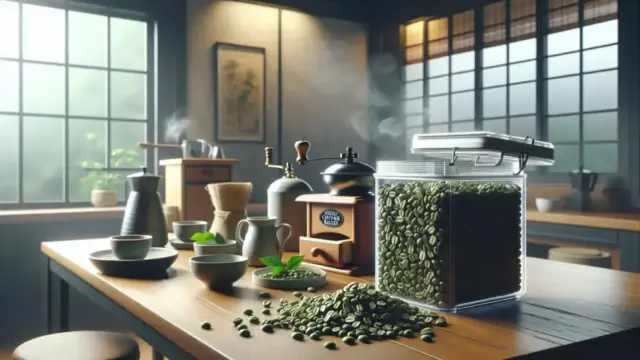






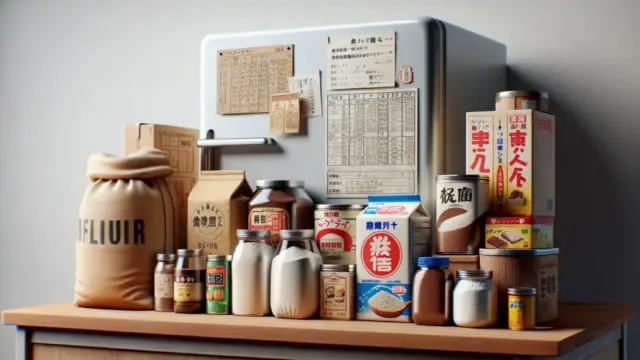
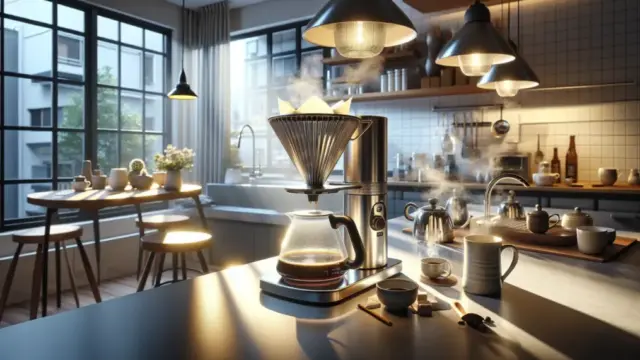

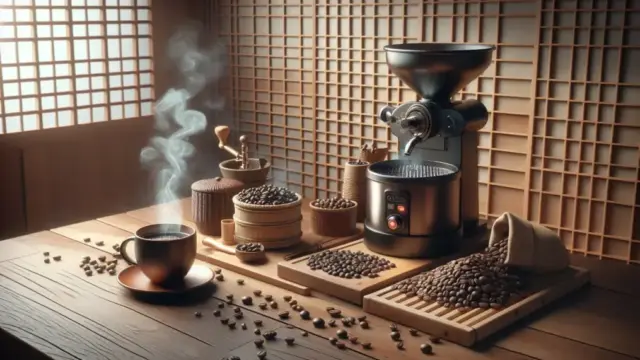




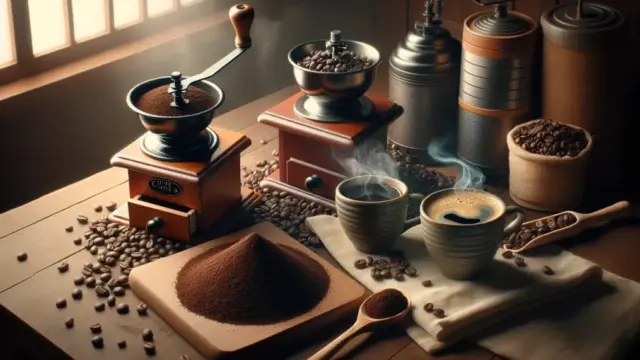
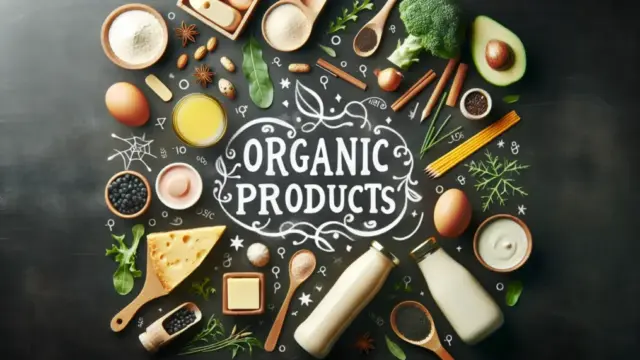


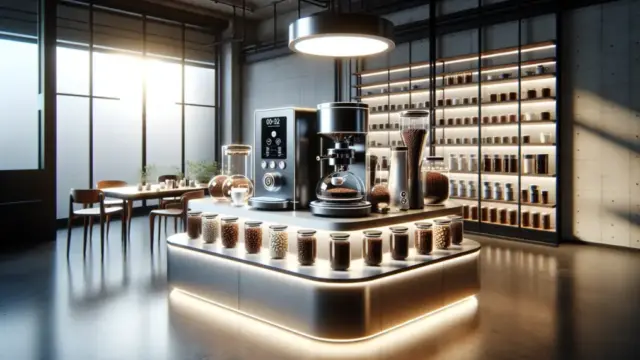










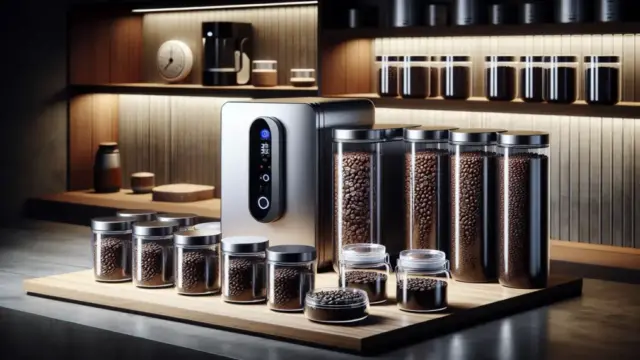





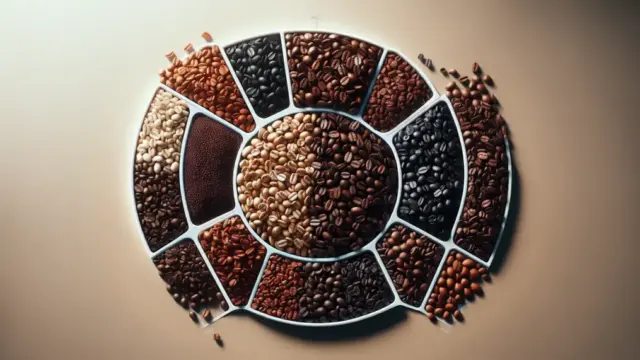



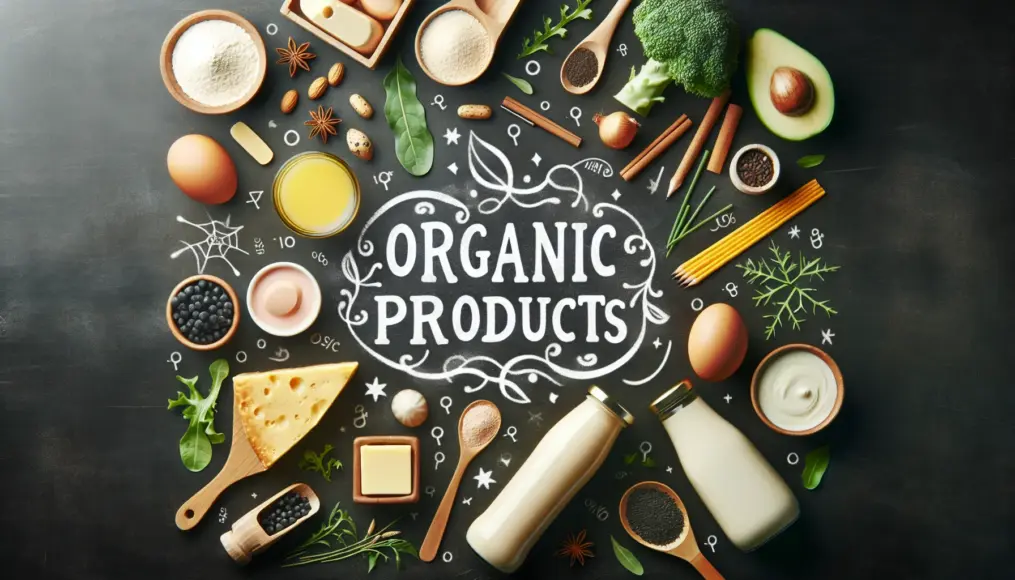
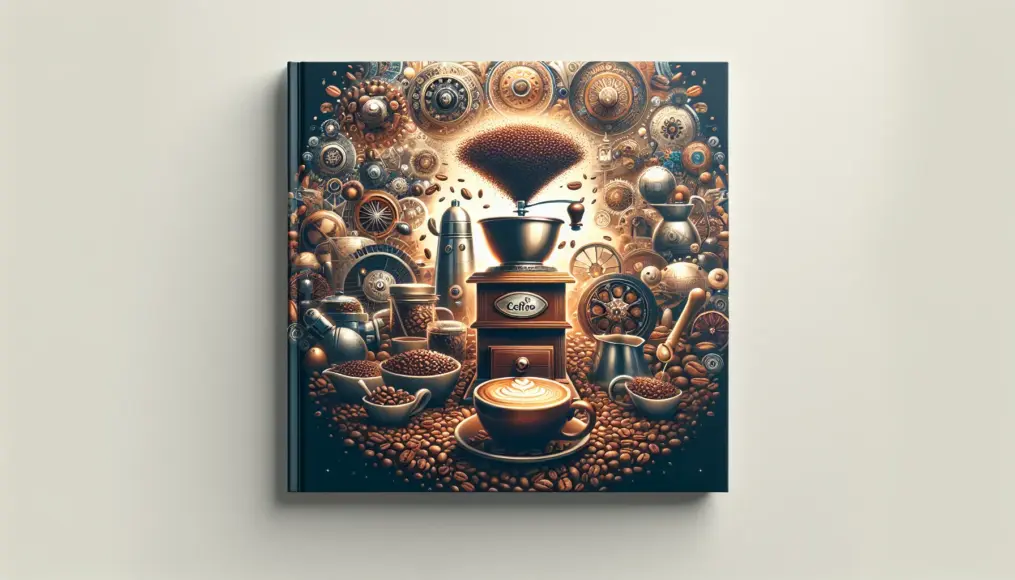

Comment